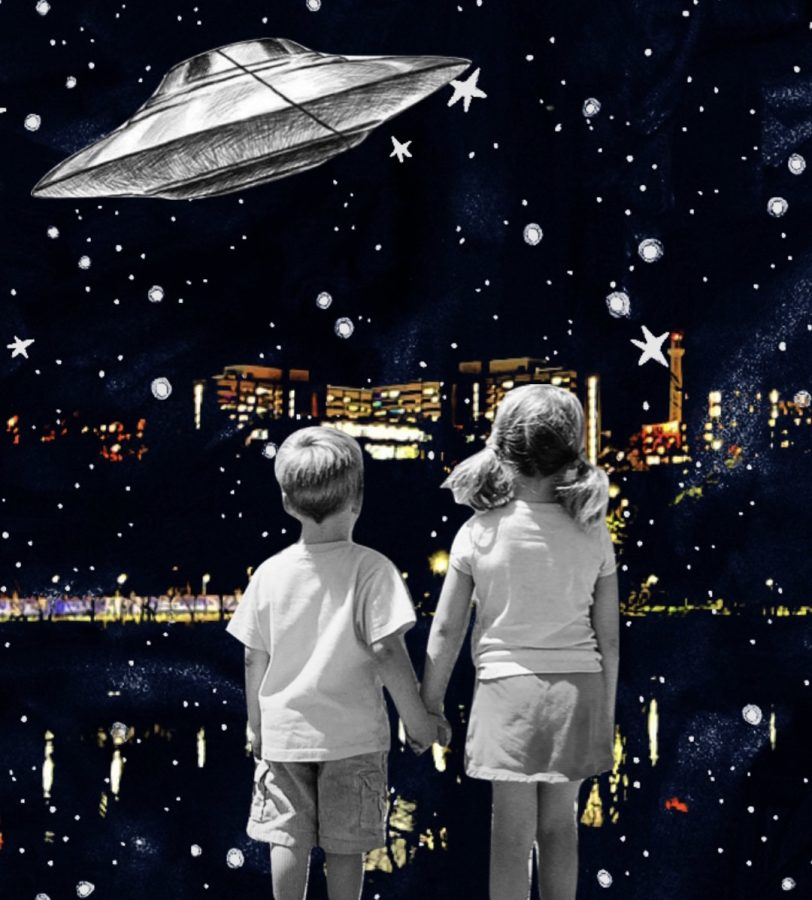You are not alone in the universe
Aliens, AI and Autophobia
It’s the middle of the night. You’re walking home, the sky is clear and you look up. It’s been a long week, and your faith in humanity is starting to waver. The stars shine into the darkness, and in that moment it almost feels like they’re looking at you.
It would be hard to imagine that in the great expanse of space, there would be no life outside of our own. It’s the reason we give names to inanimate objects, why we talk to our pets like humans and emotionally attach ourselves to television show characters.
We are all reaching for a connection with something that isn’t there. AI may be the best example of this, shown in the book “Klara and the Sun” by Kazuo Ishiguru.
The book focuses on an AI companion and her owner forming a bond as the AI learns more about its surroundings and how humanity works in this dystopian environment.
We fall in love with anything that mirrors humanity, really. More specifically, we love anything we are able to teach. A dog learns tricks, and an AI can learn about the ways humans interact and mimic them.
In a world where technology and humanity are intertwined, any level of connectivity is seen as love.
And maybe, the living beings of planet Earth are alone in that fact — and we really are the only biological creatures in the entire universe.
According to Gallup, 75% of Americans believe there is life out there somewhere. Maybe that’s why people dedicate their entire lives to this cause, the idea of another world outside our own.
From a scientific perspective, there is chemical proof that there are places in our galaxies that could or have held life. Daniel Cleary from Science.org speaks on the power of oxygen and methane in producing life.
“Methane and oxygen together make a redox pair: two molecules that will readily react by exchanging electrons … they would quickly combine to produce carbon dioxide and water,” Cleary said.
Knowing the basics of life itself, any living creature we know of or could understand to this point would have to have some interaction with water.
A couple of years ago, NASA released information regarding water on Mars. This in itself sparked many to think of a day when we as humans might migrate there, and others to consider those who used to reside there.
So what makes this fixation so interesting to the human race? Somehow the idea of life outside of the Earth is fascinating and terrifying for us at the same time.
Terrifying for sure, we hate and tend to attack things we are afraid of. Psychology Today says “Hate is grounded in some sense of perceived threat.” It’s a survival technique, like fight or flight.
And yet, instead of shunning them the way we usually do about things we don’t understand, we love to conspire about the mystery organisms of the universe.
The main reason for this is simple: we, as a species, are terrified of being alone. We pick up stray dogs, we (or some of us) volunteer for the unhoused and we cry when we see old people eating alone at restaurants (ok maybe that last one is just me).
There’s even a word for it –– autophobia. As humans, we were at some point, pack animals. And that continues within us even to a smaller extent.
And that’s exactly it. Wouldn’t it be so lonely, to be the only living being in existence? That our hopes for a shiny, Jetsons-like universe far from our own are just another example of us inevitably calling into the void?
But doesn’t that in itself mean something? If we’re all looking up at the sky waiting for something to show itself, even if it never does, we’re still waiting for it together.
So anyway reader, the sky may or may not be looking back at you. There’s no way to tell as of now, and if it soothes your mind to think the stars are making eye contact, you’re not the only one.
Brandel can be reached at [email protected].

Delia is a second-year illustration student, pursuing a career in children's book illustration and animation. This is her third semester on The Spectator. Delia is particularly fond of books, art, her cat Applesauce, music, tea, baby clothes, the 2019 version of “Little Women” and animated movies.











